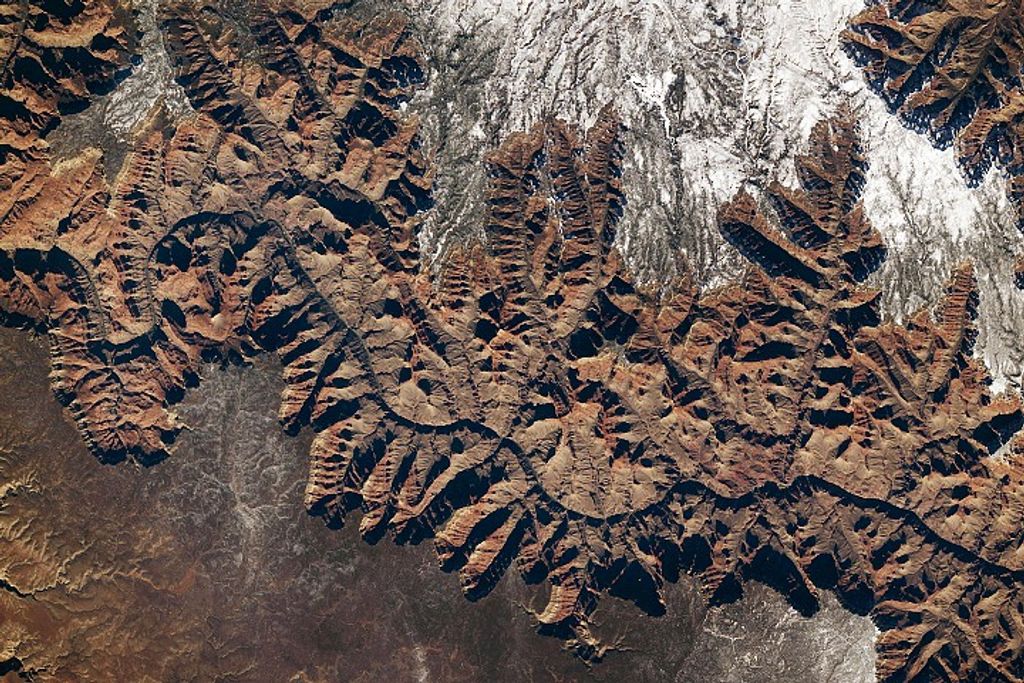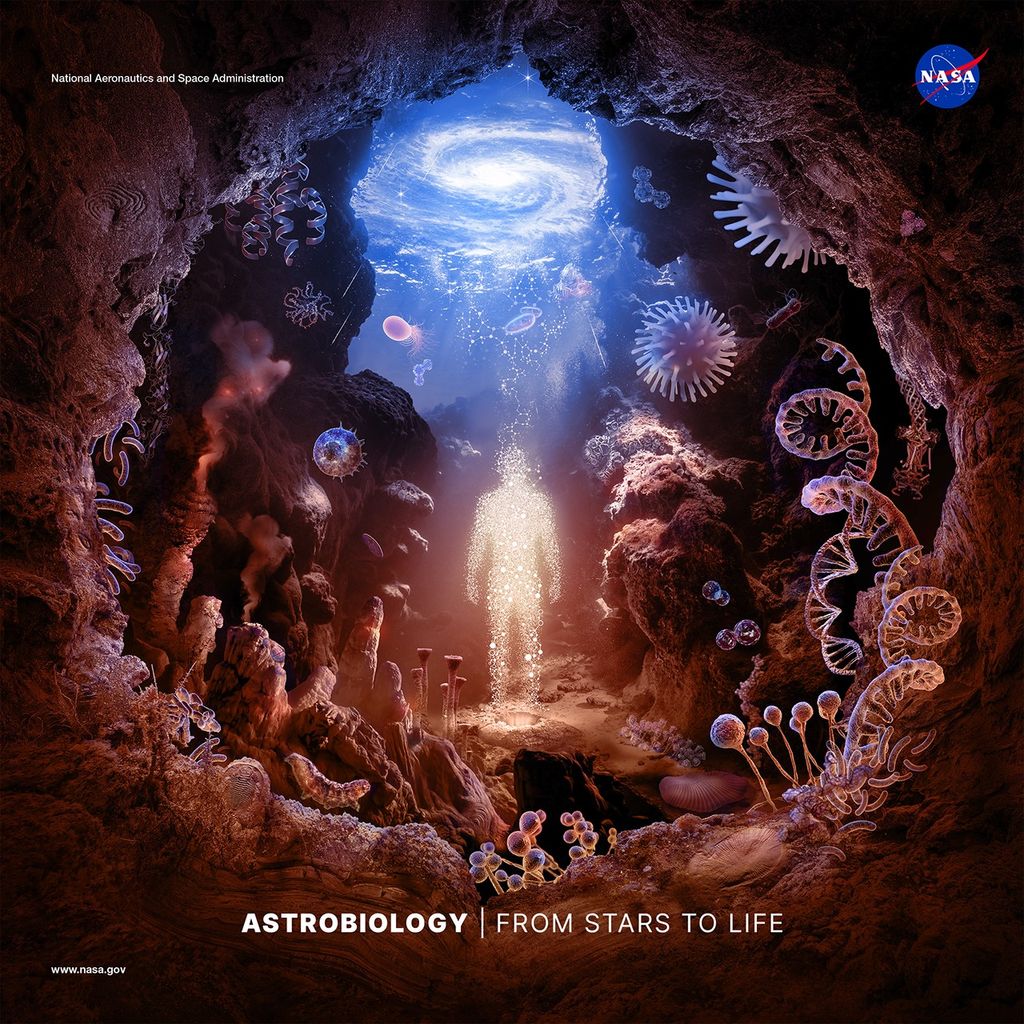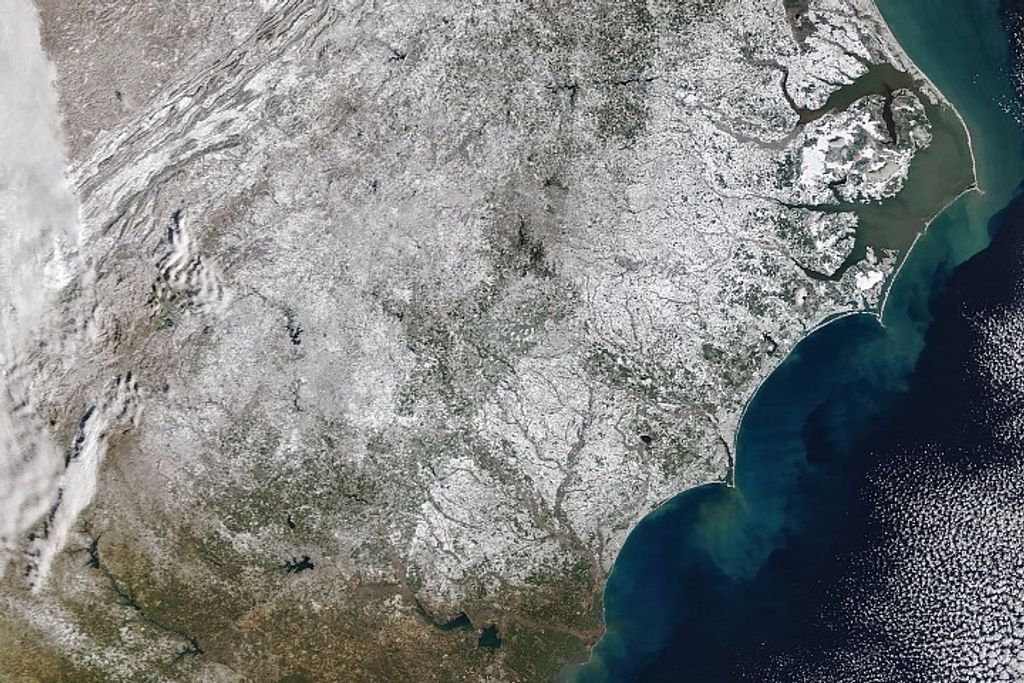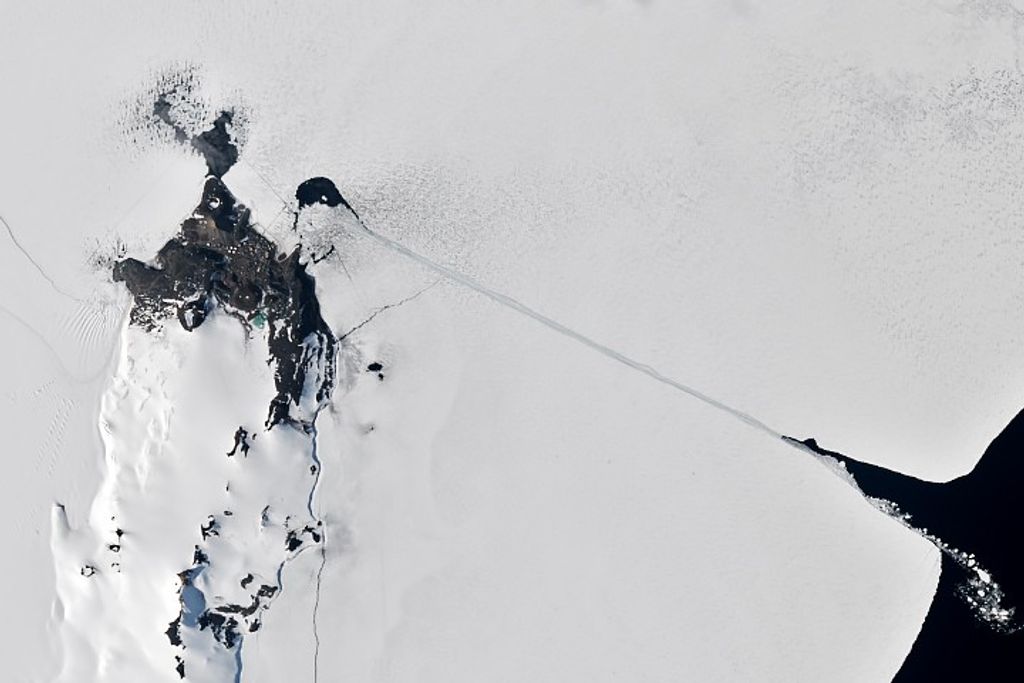Juno Stories

Results from the solar-powered spacecraft provide a new measurement of the thickness of the ice shell encasing the Jovian moon’s ocean. Data from NASA’s Juno mission has provided new insights into the thickness and subsurface structure of the icy shell encasing Jupiter’s moon Europa.…

Jupiter hosts the brightest and most spectacular auroras in the Solar System. Near its poles, these shimmering lights offer a glimpse into how the planet interacts with the solar wind and moons swept by Jupiter’s magnetic field. Unlike Earth’s northern…

An experimental technique rescued a camera aboard the agency’s Juno spacecraft, offering lessons that will benefit other space systems that experience high radiation. The mission team of NASA’s Jupiter-orbiting Juno spacecraft executed a deep-space move in December 2023 to repair…
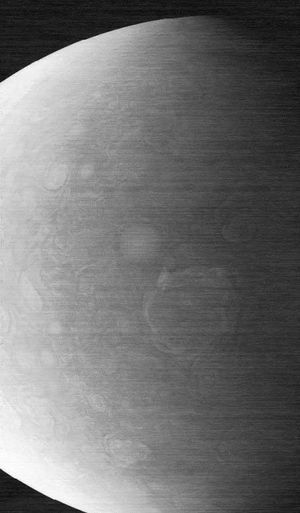
The graininess and horizontal lines seen in this JunoCam image show evidence that the camera aboard NASA's Juno mission suffered radiation damage. The image was taken Nov. 22, 2023.
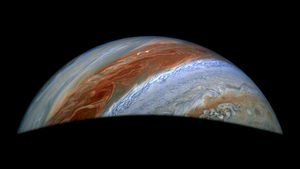
JunoCam captured this view of Jupiter's northern high latitudes from an altitude of about 36,000 miles (58,000 kilometers) above the giant planet's cloud tops on Jan. 28, 2025.









